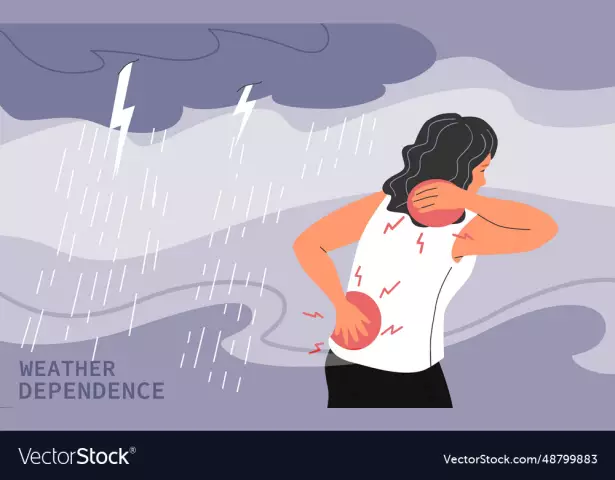- Author Rachel Wainwright [email protected].
- Public 2023-12-15 07:39.
- Last modified 2025-11-02 20:14.
Drug dependence syndrome

Repeated long-term use of drugs can lead to the fact that when they are canceled, a person's health condition or well-being sharply worsens. This condition is called drug dependence syndrome.
Often, the syndrome occurs with the use of psychotropic drugs, most often associated with withdrawal (opiates and psychostimulants), but drug dependence can also arise from many other drugs, for example, glucocorticosteroids, as well as from hallucinogenic substances or organic solvents that are not used for treatment.
The syndrome is determined by the pathological need of a person to take such drugs to avoid discomfort, mental disorders and abstinence - a condition in which the patient has a hysterical fear of drug withdrawal.
Overcoming drug dependence can only be abrupt, especially in cases of mental dependence, or a gradual rejection of the use of drugs, or their replacement with additive drugs.
Types of drug addiction
In medicine, there are two types of drug addiction - physical and psychological (mental). The first occurs after the withdrawal of a substance or drug leads the patient to a state of abstinence, mental, autonomic-somatic or neurological disorders.
Withdrawal, in addition to the withdrawal of the drug, can also be due to the introduction of antagonists of the substance that caused physical dependence, its clinical picture completely depends on the type, duration of use and doses of the psychoactive substance.
The development of the second type of drug dependence - psychological, occurs in conditions when drug withdrawal causes psychological or emotional discomfort. It can be recognized by the patient's irresistible urge to take this medicine, which turns into an obsession.
Development of drug dependence
It is assumed that the basis for the formation of psychological drug dependence is the ability of psychotropic drugs to change the psychological state of a person for the better.
Most of these drugs, whether tranquilizers, narcotic analgesics, alcohol, sleeping pills and sedatives, psychostimulants or tranquilizers, have a direct effect on the perception, mood, thinking of a person, cause euphoria, relieve tension, fear and anxiety.
Such a reaction of the body in some people, due to predisposing genetic, psychological, social, biochemical and situational factors, can form an irresistible desire to re-take psychotropic drugs, which leads to drug dependence.
An extreme form of such an imposed need is the development of a pathological desire to frequently use psychoactive compounds to achieve a state of euphoria, which subsequently turns this state into drug addiction or substance abuse.
In many cases, psychological drug dependence occurs when psychotropic drugs are prescribed to patients suffering from neurosis or with an anxious and suspicious character. Such patients, finding themselves in a situation where drug withdrawal leads to negative affective reactions, often resort to self-administration of any psychotropic substances in order to eliminate the negative consequences of withdrawal. As a result of such actions on the conditioned reflex mechanism, drug dependence develops in such persons.
Thus, we can conclude that in many ways the emergence of psychological dependence on drugs is associated with the formation of a conditioned reflex stereotype in the patient, since after taking such drugs he feels calm, the feeling of discomfort and anxiety passes, euphoria and an emotionally positive state sets in.
Presumably, in the development of physical drug dependence, in addition to conditioned reflex mechanisms, those adaptive reactions of the body, which are associated with a change in the internal organs of sensitivity and the number of receptors interacting with psychotropic substances, play an important role.
Diagnosis and treatment of drug addiction

Drug dependence can be recognized by the patient's steady craving for drugs and their analogues, the constant need to increase a single dose, when a person panics at the mere thought of skipping a drug intake, his hands tremble, an intolerance to bright light or loud sounds appears, anxiety and excessive sweating.
Having found out that the patient has developed dependence on taking the drug, the doctor determines its degree, and also finds out how strong the patient's desire is to get rid of this condition. It is the patient's strong and sincere desire that plays a key role in the treatment of drug dependence.
A complete refusal to use the drug is the most important point in therapy, it is best to hospitalize the patient, since such a step can ensure strict adherence to all the recommendations of the attending physician. The relatives and friends of a patient with drug dependence should express understanding and support him during the rehabilitation period.
In general, drug dependence treatment is complex, it includes psychotherapy, body cleansing, prescription of drugs and physiotherapy exercises.
Drug addiction is a condition in which a person develops panic from the mere thought of discontinuing the drug. There is such a dependence both on psychotropic drugs or glucocorticosteroids, and on hallucinogenic substances that are not used for treatment. Recognizing and applying at an early stage of adequate treatment is a guarantee that the fight against drug dependence will be effective.
YouTube video related to the article:
The information is generalized and provided for informational purposes only. At the first sign of illness, see your doctor. Self-medication is hazardous to health!






